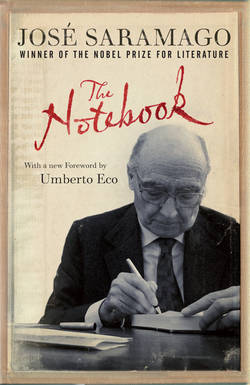Читать книгу The Notebook - José Saramago - Страница 46
На сайте Литреса книга снята с продажи.
A NEW CAPITALISM?
ОглавлениеThe time has come for change on a collective and individual scale. The time has come for justice.
The financial crisis is again destroying our economies, hitting our lives hard. This past decade its disruptions have been increasingly frequent and dramatic. East Asia, Argentina, Turkey, Brazil, Russia, the massacre of the New Economics, prove that these are not just random accidents happening on the surface of economic life but are inscribed in the very heart of the system.
These ruptures that have ended up producing a disastrous contraction of contemporary economic life, and are used to justify unemployment and the spread of inequality, and mark the shattering of financial capitalism and the definitive ankylosis of the global economic order in which we live. So it is necessary to transform it radically.
In his discussion with President Bush, Durão Barroso, president of the European Union, stated that the current crisis should lead to “a new global economic order,” a solution that is acceptable as long as this new order is guided by the democratic principles—which should never be abandoned—of justice, liberty, equality and solidarity.
The laws of the market led to a state of chaos that brought a rescue of thousands of millions of dollars—to the culprits, not the victims. In other words, “rescue” meant “privatize the profits, nationalize the losses.” This is a unique opportunity to redefine the global economic system in favor of social justice. There was no money to fund the fight against AIDS, nor to support feeding the world. . . and finally, in a real financial whirlwind, it turns out that there were enough funds to save from ruin those very same people who, by overly favoring dotcom and property bubbles, have destroyed the world economic edifice of “globalization.”
This is why it is completely wrong for President Sarkozy to speak of the realization of so many efforts under the aegis of the interested parties aiming at “a new capitalism”! And for President Bush, as one might have expected, to have agreed that “the freedom of the market” should be safeguarded (without getting rid of farm subsidies!). . .
No: now it is we, the citizens, who should be rescued, and we should with speed and courage favor the transition from an economy of war to an economy of global development, in which the collective embarrassment of three thousand million dollars a day being invested in arms while more than sixty thousand people are dying of starvation would be overcome. An economy of development that would eliminate the abusive exploitation of the natural resources currently taking place (oil, gas, minerals, coal) and apply norms under the supervision of a reconstituted United Nations—including the International Monetary Fund, the World Bank “for reconstruction and development,” and the World Trade Organization, which should not be a private club for nations but a U.N.O. institution—using whatever personal, human and technical means were necessary to exercise its judicial and ethical authority effectively.
Investment in renewable energy, food production (agriculture and aquiculture), the obtaining and distribution of water, and in health, education, housing. . . so that the “new economic order” might at last be democratic and beneficial to individuals. The errors of globalization and of the market economy must stop! Civil society will no longer remain a resigned spectator, and if necessary will apply all the power of the citizenry together with every modern means of communication it now has at its fingertips.
A new capitalism? No!
The time has come for change on a collective and individual scale. The time has come for justice.
Federico Mayor Zaragoza
Francisco Altemir
José Saramago
Roberto Savio
Mário Soares
José Vidal Beneyto
